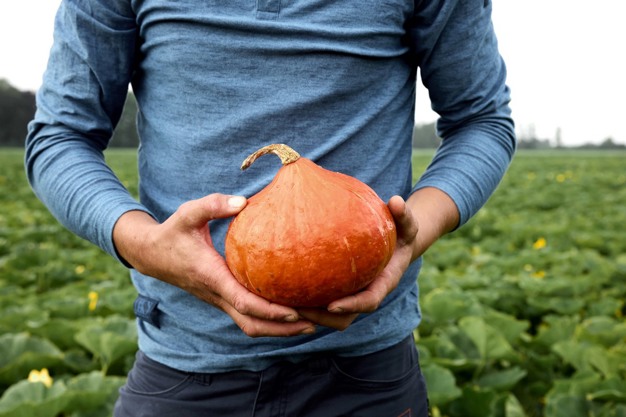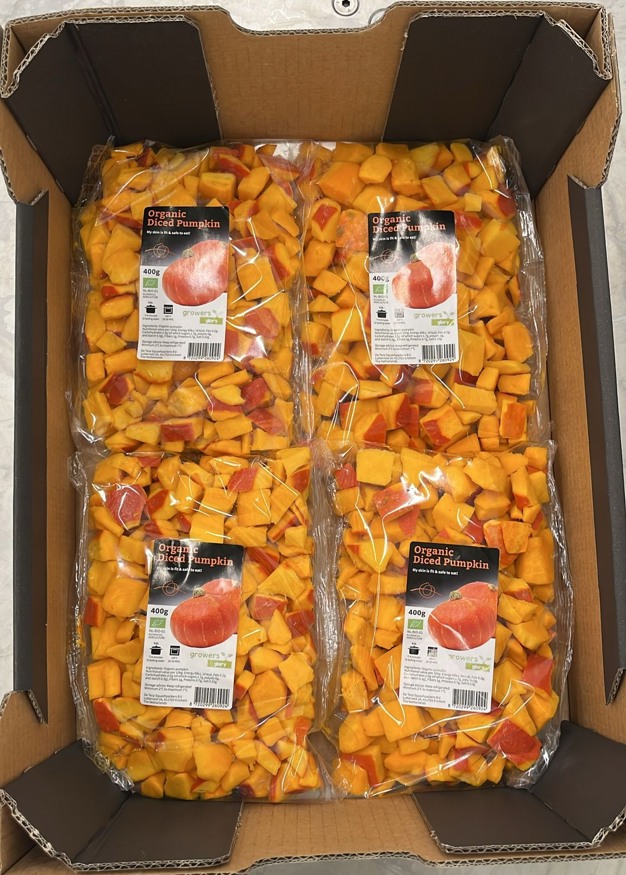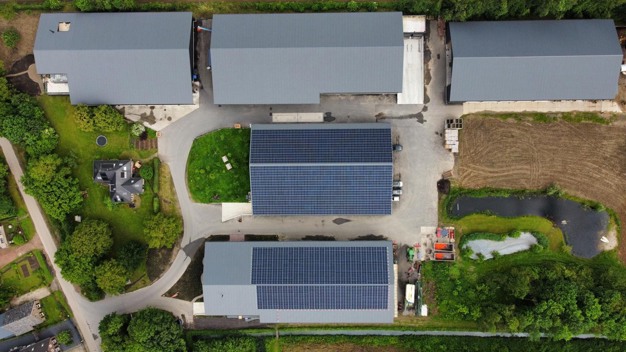Convenience and local are two trends that have been shaping the fresh produce landscape for several years. With all fall long Dutch-grown produce and, recently, the opening of a processing kitchen, De Terp Squash Only, the largest organic pumpkin grower in the Netherlands, shows it understands what consumers want.

De Terp is entirely specialized in the pumpkin chain. It has annual sales of some seven million kg of pumpkins, self-cultivated and sourced from other Dutch organic growers, as well as imports from South Africa and New Zealand outside the local season. The company recently opened a processing kitchen in a new building after a fire in April 2022, allowing for the production of convenience products. These products not only offer higher profit margins through added value but also utilize pumpkins that otherwise would not be sold due to aesthetic defects.

"In the case of orange Hokkaido pumpkins, also called Potimarron or Onion Squash, the cubed pumpkin is bagged, skin and all. That thin skin is perfectly edible and very healthy. It contains two unique carotenoid pigments, lutein and zeaxanthin. It looks nice in the pouches, too. Since the convenience segment is still relatively new to us, we still have to find our way a bit, but expectations are high," says Rinke Robbers, managing director.
South Africa and New Zealand
De Terp focuses on sales to the retail sector for both the convenience products and whole pumpkins. "Orange pumpkins and butternut squash are the big products. We carry those year-round. In the fall, we also offer Dutch-grown green Kabocha, gray Crown Prince, and spaghetti squashes, most of which we source from other growers. We continue with locally cultivated pumpkins until February, but to supplement those from mid-January, we also get the first volumes from South Africa."
"The pumpkins from New Zealand, mainly orange winter squashes (Hokkaidos), are added in March. In the southern hemisphere, New Zealand, with its temperate climate, is the most suitable growing area for this variety. South Africa, on the other hand, enjoys the advantage of different climate zones. That's also where we get butternut squash from, which need slightly warmer weather to ripen properly," explains Rinke.

All the pumpkins that come into De Terp's packing facility are organically grown. In the Netherlands, almost all pumpkins are cultivated organically, so, by definition, nearly all the products in the supermarkets are organic. Conventional cultivation is mainly for export, particularly to Germany and Belgium. In the fall through December, you will undoubtedly find conventional products on the shelves in Northwest Europe. But, according to Rinkie, after the New Year, that supply slowly disappears, and in the winter, organic pumpkins completely replace those.
Innovation remains a core value for the company, with the development of fully automated harvesters to improve efficiency. The Terp Squash Only illustrates how specialization, sustainability, and innovation can lead to success in modern agriculture.
Rinke Robbers
[email protected]
D e Terp Pompoenen
e Terp Pompoenen
Lutterveld 2ª
4117 GV Erichem
Mob: +31 (0)6 50210958
www.deterppompoenen.nl/
